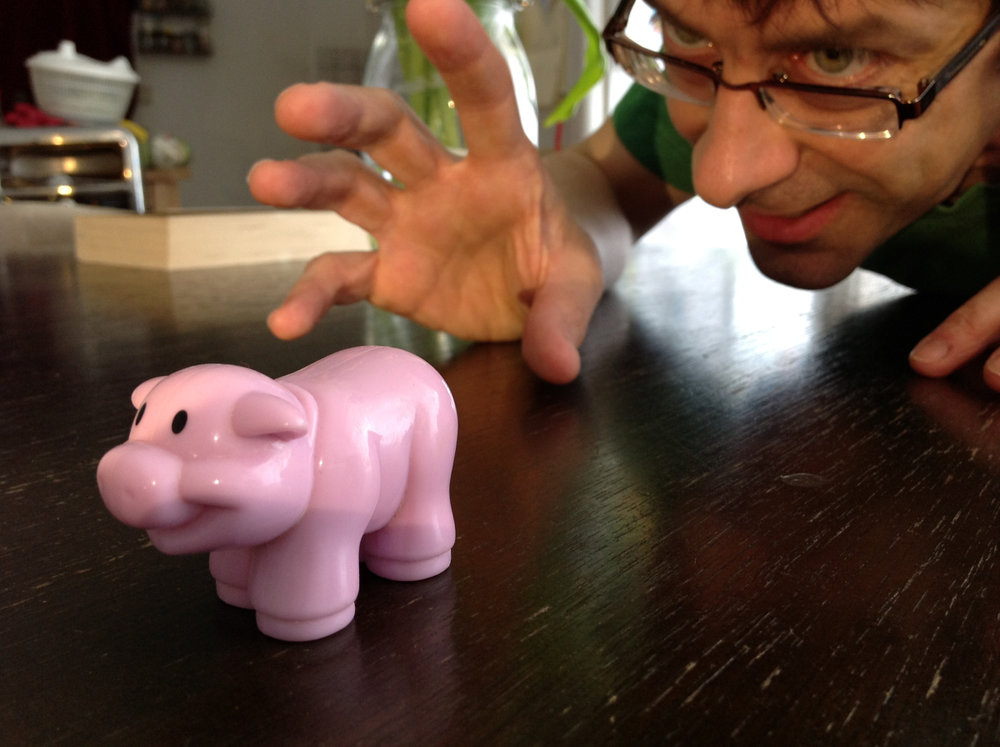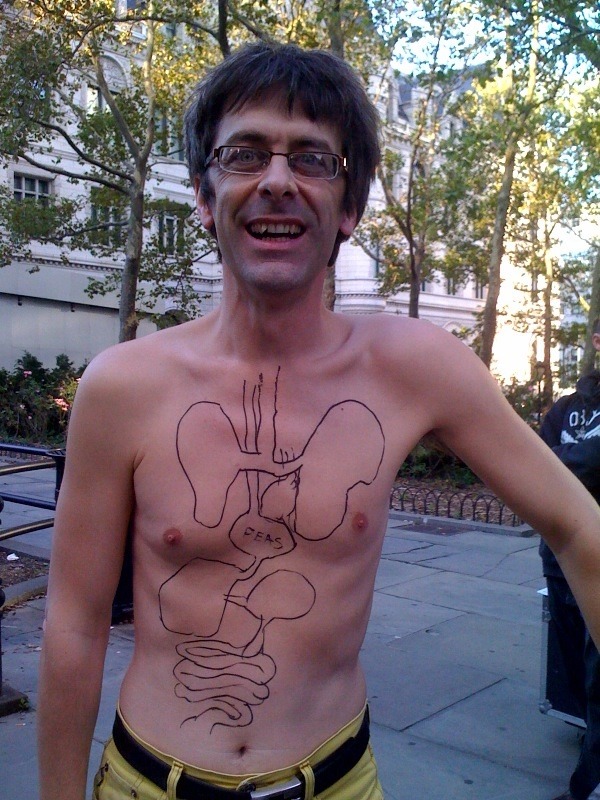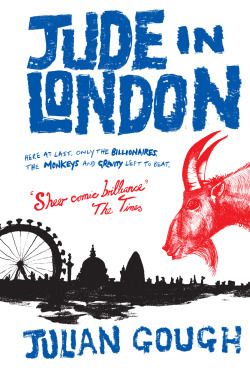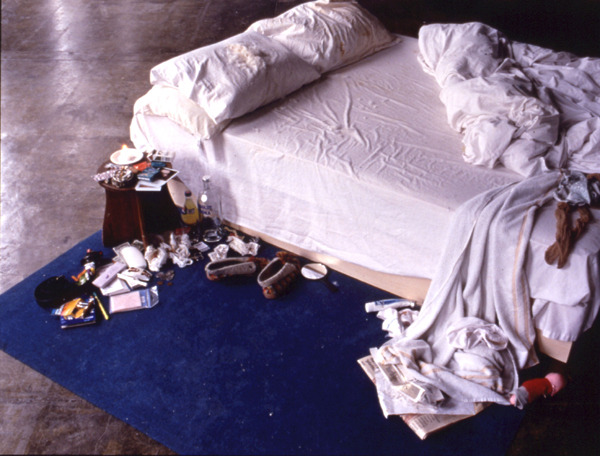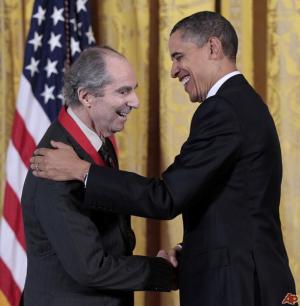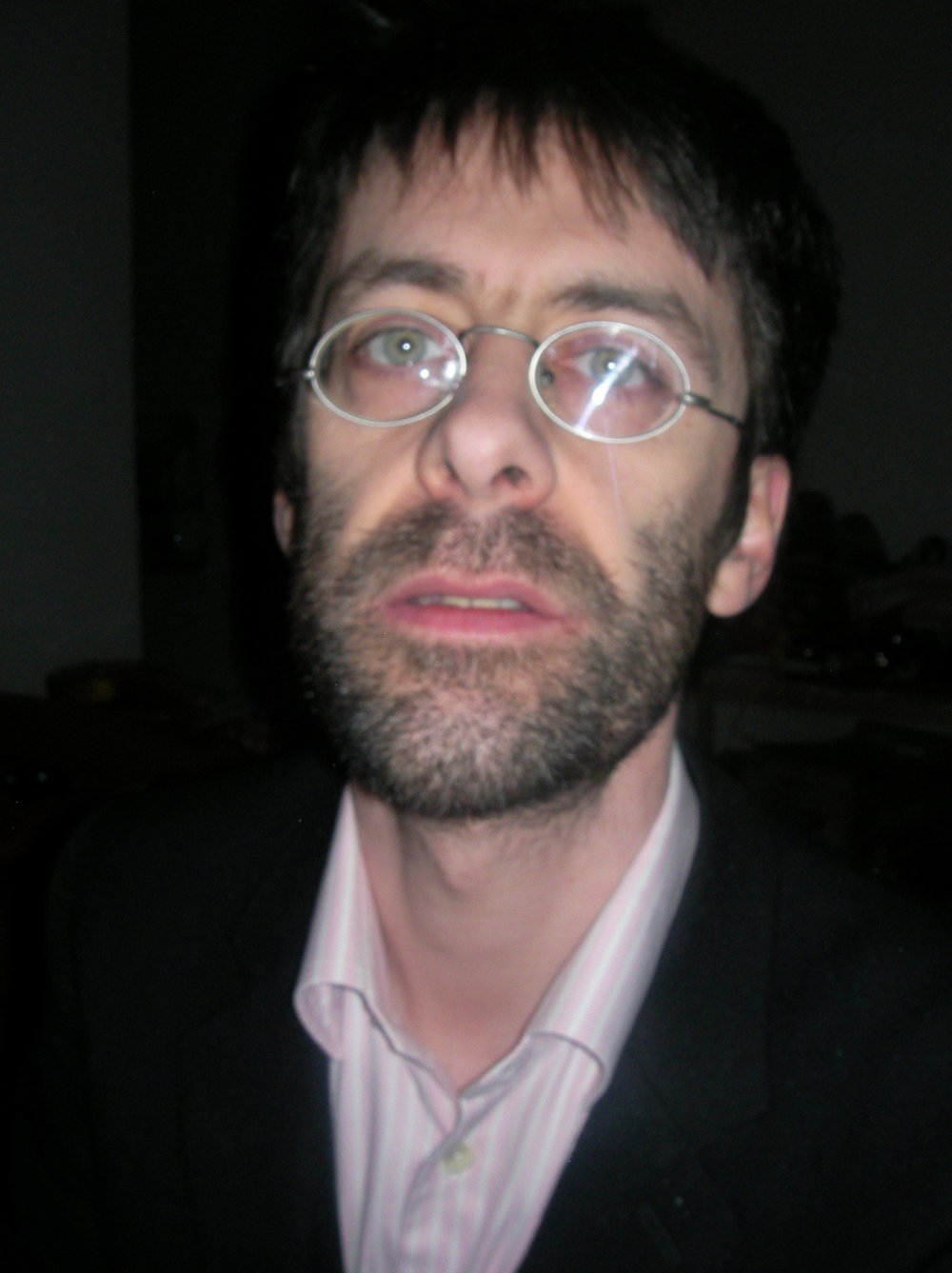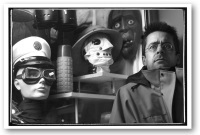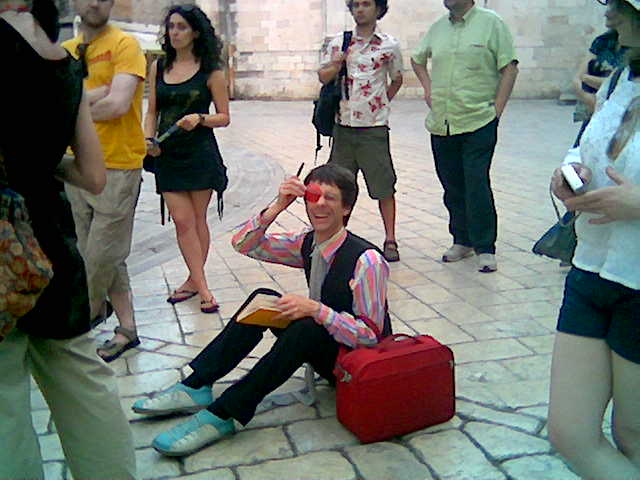To my slight surprise (and immense delight), my story “The Orphan and the Mob” was chosen to represent Ireland in the ambitious new anthology, Best European Fiction 2010 (edited by Aleksandar Hemon, and introduced by Zadie Smith). The book’s publishers, Dalkey Archive Press, recently asked me five polite questions about the state of Irish literature. I replied with an intemperate rant. A slightly updated version follows below…

1. Are there any exciting trends, movement, or schools in contemporary Irish fiction? Who do you feel are the overlooked contemporary authors in Ireland who should be more widely read and translated?
I haven’t the faintest idea. As is traditional with my people, on achieving the status of Writer, I was strapped to an ass and driven from the City. I’ve lived in Berlin for the past few years. When I was in Ireland, I lived in Galway city, which is on the opposite side of the country to Dublin, where the novelists fester. Galway doesn’t really do literature. And I grew up in Tipperary, in the midlands, where writers were, until recently, killed and eaten. And quite rightly.
If there are exciting trends in literary Ireland, the excitement hasn’t made its way to Berlin yet. Anyway, I don’t believe in trends, movements, schools, and the whole German classification mania. That’s all made up after the fact, to help university libraries with their filing. Each pen is held by a single hand. But for what it’s worth, none of my Irish friends read Irish books any more.
Indeed, I hardly read Irish writers any more, I’ve been disappointed so often. I mean, what the FECK are writers in their 20s and 30s doing, copying the very great John McGahern, his style, his subject matter, in the 21st century? To revive a useful old Celtic literary-critical expression: I puke my ring. And the older, more sophisticated Irish writers that want to be Nabokov give me the yellow squirts and a scaldy hole. If there is a movement in Ireland, it is backwards. Novel after novel set in the nineteen seventies, sixties, fifties. Reading award-winning Irish literary fiction, you wouldn’t know television had been invented. Indeed, they seem apologetic about acknowledging electricity (or “the new Mechanikal Galvinism” as they like to call it.)
I do read the odd new, young writer, and it’s usually intensely disappointing. Mostly it’s grittily realistic, slightly depressing descriptions of events that aren’t very interesting. Though, to be fair, sometimes it’s sub-Joycean, slightly depressing descriptions of events that aren’t very interesting. I don’t get the impression many Irish writers have played Grand Theft Auto, or bought an X-Box, or watched Youporn. (And if there is good stuff coming up, for God’s sake someone, contact me, pass it on.) Really, Irish literary writers have become a priestly caste, scribbling by candlelight, cut off from the electric current of the culture. We’ve abolished the Catholic clergy, and replaced them with novelists. They wear black, they preach, they are concerned for our souls. Feck off.
But let us accentuate the positive, for the love of the Lord:
I do like Kevin Barry. His collection There Are Little Kingdoms had something special about it. Hints of glory ahead. (I gather there will be a novel. I’ll be buying it with cash money.) And from a few years back I loved Mike McCormack’s first book, the story collection Getting it in the Head. I always felt Mike McCormack had the great, demented, Irish small town heavy metal novel in him, he just needed to get it out. Then this week I discovered, from a very reliable source, that he’s finished his next novel, Pilgrim X, and it’s a post-apocalyptic Western set in the west of Ireland. Hurray! Exactly what Irish literature needs right now. I hear there’s a strong Scandinavian death metal vibe off it. This has all the signs of being his major breakthrough, and breakout.
For me, the only writer to grab the Celtic Tiger by the tail and pull hard while the tiger roared was Ross O’Carroll Kelly, the pseudonym of Paul Howard. And that was a newspaper column. (Collected every year into a new book – read them all if you want to understand Ireland’s rise and fall. No other writer caught it while it happened. The best, funniest, and most historically important run of Irish satirical journalism since Myles na gCopaleen.)
The Irish writer that most excited me recently was Diarmuid O’Brien, and he writes unproduced television scripts. Very funny, very Irish, on the edge of the surreal, a nice mixture of WB Yeats and UK sitcoms. Padraig Kenny is another very funny, passionate, interesting guy trying to do interesting things with TV and radio scripts. (He has already managed to turn his Twitter rants into an artform.) Tommy Tiernan is Ireland’s most philosophical voice, but he has chosen stand-up comedy as his way of delivering his philosophical prose. Tiernan has read everything by Beckett, and everything by Lenny Bruce, and combined them. On the right night you will end up on the floor weeping tears of laughter and recognition as he takes Ireland apart. I remember reading Graham Linehan when he was only 17 and writing for Hot Press, and thinking, this guy is the funniest writer in Ireland. Of course, he got no recognition or encouragement in Ireland, so he went to London and co-wrote Father Ted, and Black Books, and now writes The I.T. Crowd. (Two days ago, as I write this, he won the British Comedy Award for writers.) The guy’s a genius, but he’s been working out of London, with UK broadcasters, since his early 20s, so he has no reason to address Ireland. (We had other geniuses, a decade or two back, but we didn't want them either. Cathal Coughlan tried to tell us who we were, spewing poetic vinegar with Microdisney, then sulphuric poetry with Fatima Mansions, but we didn't want to listen. Don't get me started on Cathal Coughlan, I'll cry.)
But then, why would our funniest, most original voices want to join a pompous, priestly, provincial literary community? I’m pretty sure the best of the new, young Irish writers are writing for film, TV or computer games. Of course, anyone decent then has to go to England to get anything made. Another problem with Ireland is that its national broadcaster makes civil service television. Raidió Teilifís Éireann have never made a good comedy, they hardly ever make decent drama, and they treat writers like shit. Any work that has to go through an official Irish institution is slowly castrated by committee. All of those things are set up wrong. Our national theatre, The Abbey, is a weird, dysfunctional machine for setting fire to money. There is an almost total disconnect between the plays the Abbey puts on and the nation they are supposed to represent. (It does put on work by good playwrights: but with a thirty year delay.) Its most recent director, Fiach Mac Conghail, is doing his darndest, but turning round around The Abbey is like trying to do a wheelie in an Airbus full of American tourists. As an Irish playwright, you’ve a far better chance of getting your first play put on by the Royal Court in London than by any theatre in Dublin. Culturally, Ireland is a failed state. The fact is disguised because the UK and the USA have taken up the slack, and given our artists an outlet. But Ireland herself has, for example, never made a television program that anyone outside Ireland would want to watch. Given the quality of our writers, and the size of the global English-language TV audience, this is an immense national disgrace. (Just to repeat, everyone involved in Father Ted was Irish - but it was made by the British broadcaster Channel 4.) I know and like many of the individuals who work in RTÉ, but it is institutionally incapable of using the talents of its people, and it is institutionally incapable of change. Its news and sports coverage are excellent, the rest of it should be shut down. At the moment it’s a machine for wrecking talent, and the talented people inside it would be much happier under almost any other system.
The only area where Irish writing is thriving in Ireland itself is on the internet, because it’s a direct connection, writer-to-reader. Blogs captured, and capture, Ireland in a way literature no longer does. Sweary Lady was brilliant (on her Arse End of Ireland blog), right through the Celtic Tiger years. Kav wrote the great Kav’s Blog. (Sweary and Kav both moved on to the Coddle Pot group blog…) And the quality, and quantity, of the swearing was and is very high on the Irish blogs, with guys like Twenty Major. The Irish swear better than almost anyone else on earth, bar maybe the Spanish and a couple of countries in Africa. That’s another area where I think recent Irish literary writers – with the honourable exception of Roddy Doyle - have failed us badly. Ireland’s great lost playwright, Kevin McGee, was a master of the kind of swearing that had you desperately poking your inner ear with a biro to try and remove the images from your head. However, he was let down by professional theatre, moved into writing television soap operas (and translating the classics), and seems to have abandoned the stage. Who will swear for us now? Who will let rip the savage, guttural, primal utterance – half Yeats poem, half Guinness fart – required, DEMANDED, by the current state of Ireland? {EDIT: Probably Kevin Barry. Since this was first written, his apocalyptic story Fjord of Killary has appeared in the New Yorker, gracing its fragrant pages with North Galway lines as pinpoint accurate as these:
“Fuckers are washin’ diesel up there again,” John Murphy said. “The Hourigans? Of course, they’d a father a diesel-washer before ’em, didn’t they? Cunts to a man.”
“Cunts,” Bill Knott confirmed.}
But I am biased, unstable, bitter, twisted, and living abroad, so don’t rely on my judgement. I’m sure there’s millions of brilliant writers in Ireland, I’m just mysteriously missing them every time I go there and look. In fact, aware of this, I outsourced the search to Twitter and asked who were the overlooked or neglected Irish writers that I’d missed. Here were the suggestions I got back, to balance my bile:
John MacKenna, Tomas O'Crohan, Mark O' Rowe (playwright and screenwriter), Antonia Logue, Sean O'Reilly, Vincent Woods (for “At the Black Pig's Dyke, the most underappreciated Irish play in the past 20 years.”), Gavin Duff, John Moriarty, Mike McCormack.
In an enjoyable and robust Twitter debate, Rosita Boland of the Irish Times took issue with the idea that O’Rowe, McCormack or O’Reilly were overlooked. This is a fair point, as all three do get excellent coverage in the Irish Times and on RTÉ, and O’Rowe has a powerful, thoughtful patron in Michael Colgan of the Gate Theatre.
Others on Twitter (some of them from lands far from Ireland) suggested Philip O Ceallaigh, Ken Bruen, and Dermot Healy, but it’s hard to think of these excellent, award-winning and acclaimed writers as being “overlooked” in any meaningful way.
As for Irish language writers – I’m not qualified to judge. They could all be geniuses for all I know.
2. Who are the contemporary European writers from other countries that are writing compelling fiction?
I’d only be bullshitting you if I tried to answer that question. My pitiful French, street-German, bar-Spanish and school-Irish are not remotely good enough to make literary judgements. I can barely mangle my way through comics in any of them. So, for me, all of European mainland literature is at the mercy of the quality of its translators, which makes me reluctant to judge. For all I know, I should be praising the translator, not the original writer. If you read my first book in Swedish, you would think I was a genius. If you read my first book in German, you would think I was a fool. So it goes. In fact, I strongly suspect that the Swedish translator of my first novel is a better writer than me, and wrote a better book. Molle Kanmert’s emails asking me questions were far funnier than mine, and the Swedish version outsold every other version. Someone sign her up for a novel…
3. Do you want your work to be translated? Why or why not?
Of course I do. I want readers. I want to be understood, I want to be misunderstood, I want to get into fights, I want to swim in the Dead Sea, I want to die in my swimsuit, I want to visit Siberia (but leave again), I want to butt in on your national conversation, drink your national drink, shoot and stuff your national bird, eat your national icecream, kiss your poets and pat your dogs and weep at the airport as we hug each other and exchange email addresses and our respective national varieties of flu.
4. Are there enough publishing outlets in Ireland for contemporary fiction? Is there a market for literary fiction in Ireland?
Well, we have the usual situation that arises when you share a language with a larger neighbour. A perverse, S&M relationship. You fight your oppressor & occupier for 800 years, get your freedom, then immediately ask them for a publishing deal. Just as Bosnian writers seek Croatian publishers, Irish writers seek English publishers. Of course, English publishers seek Irish writers, so it’s a healthy, wholesome S&M relationship. 80% of Irish novels come out of London publishing houses. There’s always a slight tension in that relationship, of course, because some of your jokes and references won’t be understood by your publisher. But London publishers are very good at making sure that doesn’t become a problem, and that the integrity of the work is protected. They have to navigate the same issues with Welsh and Scottish and Indian and Australian novelists, so it’s not a big deal. There are a lot of small, very noble but very undercapitalised Irish publishers, but they have great difficulty hanging on to their writers if a UK publisher offers a decent advance. Or any advance at all.
We don’t really have a problem with lack of recognition, lack of outlets. The best Irish writers get recognised, usually in London first, after which the Irish literary establishment falls into line. Ireland very, very seldom discovers its own writers first. Roddy Doyle had to take out a bank loan to publish the Commitments in Ireland. After which, he was picked up by an English publisher.
That has an interesting effect, though. Knowing that you are addressing sixteen UK readers for every one Irish reader, in a very mild way your book goes into translation in your head, as you write it. Most Irish writers will deny this, but I think it’s true. Of course I was born in London to emigrant Irish parents, so I feel equally at home, or not at home, in both places.
5. Given a choice, would you prefer a faithful, literal translation of your work or an interpretive re-imagining of it? Why?
An interpretive re-imaging, definitely. I don’t think a “faithful, literal” translation of my work – of any work - is even possible. If a translation were to be literal, it wouldn’t be faithful, and vice versa. Any decent writer is playing with nuances, rhythms, echoes, soundstuff that will evaporate in any literal translation. I like a lot of layers. Puns, resonances, double-meanings, Tipperaryisms, things my mum says at Christmas. Often the point of the sentence hasn’t anything to do with its literal meaning at all.
I use deliberately “wrong”, literal translations of phrases from the Irish language sometimes myself, because they sound fecking great in English. Friends of my dad would still say “I walked several strong miles”, and that is straight out of the Irish.
The Jude books are deliberately written in a stilted, old-fashioned, formal English, of the type spoken in Ireland a century ago. It’s the first-generation English of speakers who learnt English in school, from books, because their parents spoke Irish at home. For me this is a very rich form of English, because you can let the underlying Irish thoughts, structured in Irish grammar, burst through now and again. There is always a nice tension in the speech, as though Jude is walking on linguistic stilts, and has to be careful. He is trying to be terribly precise with a language he doesn’t really control or own.
Sometimes the games I play with the various versions of English are fairly explicit, as in the case of this head injury in Jude in London:
“Their noble Tipperary speech reminded me of my mental catastrophe. I looked up from my book, and took the opportunity to experiment with my deformity: I spoke a Catholic thought, and it came out Church of England: I praised a fine All-Ireland semi-final performance by the Tipperary Under-21 hurlers against Kilkenny; and from my mouth came alien speech of an F.A. Cup semi-final replay at Villa Park.
Sweet Mother of Jesus, I thought, astonished, and
“Queen of Heaven!” I said.
Christ on a bicycle, I thought.
“Good Lord!”
Holy fuck.
“Blessed Union!”
I gave up the attempt to accurately express myself, and returned to my book.”
I must be a real bastard for translators, because increasingly I like to back-engineer scenes so that a crucial line of narrative, thrown up by the action, is also a line of poetry by Yeats, or a line of dialogue is also a line of Joyce, or Kafka, or is made out of Radiohead song titles. They can be tricky to spot - most of my native-English readers miss most of them. And I also use the misunderstandings and gaps between American English and English English and Irish English to generate jokes and misunderstandings, and moments of unease.
A single English word sings in many voices, and I like to set off a couple of them, and make my words sing harmonies with themselves, or beat each other up. I doubt if anyone but me gets the half of it, but I think readers find pleasure in it anyway. I remember a woman on a blog quoting her favourite piece of my writing. She said she couldn’t put her finger on why she liked it so much. Well, I could. It was the end of a chapter, and I’d written it in iambic pentameter. Because it was laid out like prose, she hadn’t consciously registered the formal rhythm, the internal rhymes. But subconsciously, she got it...
That makes me sound too much of a word wizard – I should also say that most of my sentences are extremely straightforward attempts to get a character through a door in such a way that the reader understands it without having to read it twice, and I don’t always even succeed at that.

{EDIT: OK, I'm getting Repetitive Strain Injury from putting in links to all these bastards, enough for tonight. Hope you enjoyed it, if you got this far. I'll link a few more lads tomorrow. Your comments are very welcome.}
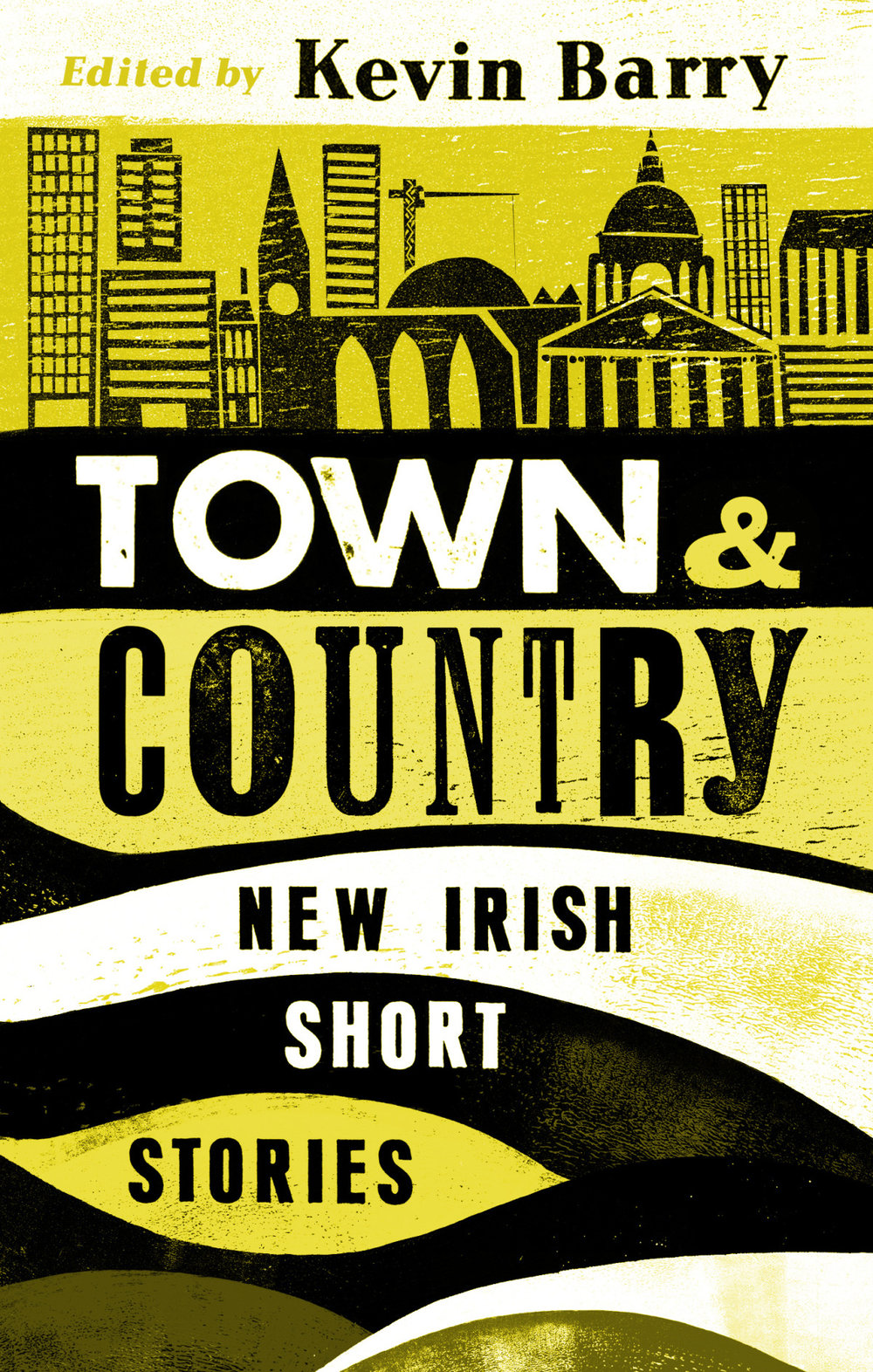 Town. Not to mention Country. On Amazon. Or in your local bookshop. Wait, no that's a boutique now. Hang on, didn't they go bust? It's an artisan bakery. Feck it, there's always the library... Hey, where's the library?
Town. Not to mention Country. On Amazon. Or in your local bookshop. Wait, no that's a boutique now. Hang on, didn't they go bust? It's an artisan bakery. Feck it, there's always the library... Hey, where's the library?


